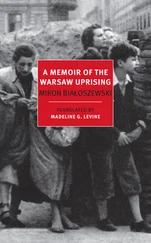‘Yes, but you don’t sound too pleased.’
‘Should I be?’
‘I don’t know. All I can say is that, in my opinion, your accent is charming.’
She smiled, hesitantly at first, then broadly, and for the first time she looked relaxed. My compliment changed her; in a voice that raced ahead into her emotions, she went on to tell me that she and her mother had lived for two years in a one-room garret that was infested with bedbugs and had a leaky roof. ‘Mama even lost her reputation,’ she told me, outraged.
‘What do you mean?’ I asked.
She crossed her arms over her chest. ‘Thanks to my dear father,’ she said, sneering.
To my subsequent questions, Irene told me that he had spread malicious rumours about an affair that her mother had carried on with a Jewish surgeon, which, in their circle, had sentenced her to ridicule. She told me several stories of how her mother had been made to suffer – and how she’d fought back through guile. It was clear that Irene admired her mother and had formed a close identification with her.
The girl had only seen her father three times since the divorce, the last time in early January when he’d shown up one Friday evening at their home without warning.
‘I have reason to believe,’ she told me, using a wily tone that implied she’d done some eavesdropping, ‘that he came here to get money out of my mother.’
Could he have been blackmailing Mrs Lanik with information about her previous life?
‘Did your mother actually tell you that?’
‘No, she refused to talk about him with me, but he was looking wasted – as if he was drinking again.’
‘Did you have a chance to talk with him?’ I asked.
‘No, he said hello to me, then spoke to my mother for a few minutes, and then he staggered off.’
Irene’s replies turned evasive when I asked about her feelings as a child with regard to her father. She clearly wasn’t ready to revisit that part of her past, so I returned to her stepfather. She told me that Rolf Lanik had grown up in Zurich and moved to Hamburg after medical school. He’d fallen in love with her mother eleven years earlier, while vacationing with his parents. Irene had lived in Hamburg with her mother and him before moving to Warsaw. Now, he had an office in the centre of the city and only came home late at night. In a disappointed voice, she added, ‘Once we moved here, he started living a separate life. We hardly ever see him. He works all day, and even in the evenings, too.’
‘Tell me a little about him.’
‘What would you like to know?’
‘You could start with your first impressions of him.’
‘I didn’t like him.’
‘Why not?’
‘He tried too hard. I mean, it was as if he was always kneeling to my level and reaching out to me. But I didn’t want him like that – as a friend. It was so awkward!’ She spoke desperately, as if needing me to confirm that her feelings were justified. ‘I wanted something else. Does that make sense?’
‘Yes, it does.’
‘Rolf never had any children of his own,’ Irene volunteered. ‘I guess he didn’t quite know how to approach me.’
‘But he learned?’
‘Yes.’
‘And when did you begin to like him?’
‘I think it was when he started reading to me. I’d be in my pyjamas, lying in bed, and he’d take a book down from my shelves and sit with me.’ She smiled gratefully. ‘I loved the sound of his voice, and how he’d look at me expectantly, waiting to see my reaction to the story. I could tell he was really listening.’ Nodding at the rightness of her words, she added, ‘Dr Cohen, when Rolf is with you, you know you have all his attention. Maybe that’s why his patients like him so much.’
‘How do you know they like him so much?’
‘Because I go to his office sometimes, and I talk with them.’
‘So he’s your doctor?’
‘He wasn’t when I was little. Though he is now.’ She looked down, as if she’d said something shameful.
As Irene told me more about her present relationship with her stepfather, I began to suspect that her continued talk of his separate life meant that she might have spotted him with another woman – maybe before or after a medical appointment with him. If so, then she was probably petrified that he would abandon her and her mother – would ‘kill’ their family, in other words. She was likely convinced that history would repeat itself – her stepfather would spread foul rumours about his wife, and she and her mother would become outcasts again. Her father’s sudden appearance may have reinforced that fear. She may have also had good reason to worry that she wouldn’t be believed – and might well be punished – if she informed her mother of her stepfather’s infidelity, since Mrs Lanik undoubtedly shared her daughter’s fears of renewed poverty and ostracism. To Irene, the only way out of her predicament had seemed suicide.
Of course, my theory could have been wrong, and I was about to probe further into her stepfather’s daily routine when I realized why I’d experienced déjà vu: Irene had repeated what a young patient of Freud’s named Katharina had told him about the face of a man she envisaged whenever she suffered an anxiety attack: He has an awful face, and he looks at me in a dreadful way.
If those weren’t the exact words quoted by Freud, they were very close. They were contained in Freud and Brauer’s Studies on Hysteria , a work I’d read several times.
Katharina had told Freud she’d overseen her uncle making love to the family cook. Could that be why I’d concluded so quickly that Irene might have seen her stepfather with a woman?
The important question now seemed: was Irene aware that she had quoted a patient of Freud’s?
‘Tell me, Irene,’ I asked, ‘have you ever read any works on psychiatry or psychoanalysis?’
‘Yes, at my grandfather’s house in Zurich. I think he owns nearly everything Freud ever wrote.’
Since she showed no sign of having been caught out, I concluded that she’d repeated Katharina’s words unconsciously – had appropriated them because her predicament was so similar. Unsure as to how to proceed, I returned to what might have happened a couple of weeks earlier to start Irene believing that she was under threat.
‘Maybe it was a dream I started having,’ she told me. She shifted forward in her seat, as though to commit herself to making deeper revelations, though she put her cushion over her lap again.
‘Tell me the dream,’ I requested.
Gazing into herself, she said, ‘I’m with some children on a meadow. In the green grass are lots of yellow flowers. Each of us is holding a bunch of flowers we’ve already picked, and we start to pick more.’
‘How many children are with you?’ I asked.
‘At least two, though I think there may be more. It’s hard to tell.’ She looked at me for approval to continue, and I nodded.
‘A short man wearing a hat comes up from the town below, and he takes the flowers from us – from me and the children. And then he walks up the hill to a cottage where a friend of his is waiting – a much bigger man who seems almost like a giant.’
‘Go on.’
‘The man in the hat hands the flowers to his friend, and he receives a loaf of bread in return. And then the man in the hat walks to me and tears off a piece of his bread for me, and I… I look around for the children who’ve been on the meadow with me, so that I can share my bread with them, but they’re gone. And then the dream shifts.’
‘Shifts how?’
‘I’m standing with the man in the hat on the sidewalk of Krakowskie Przedmieście.’ Irene closed her eyes and reached her hand out as if seeking to touch what she was seeing. ‘In front of me is a curving staircase, and it leads up to the Holy Cross Church. The street is empty. I don’t know where the other kids are, and I’m terrified. And… and that’s when I wake up.’
Читать дальше












